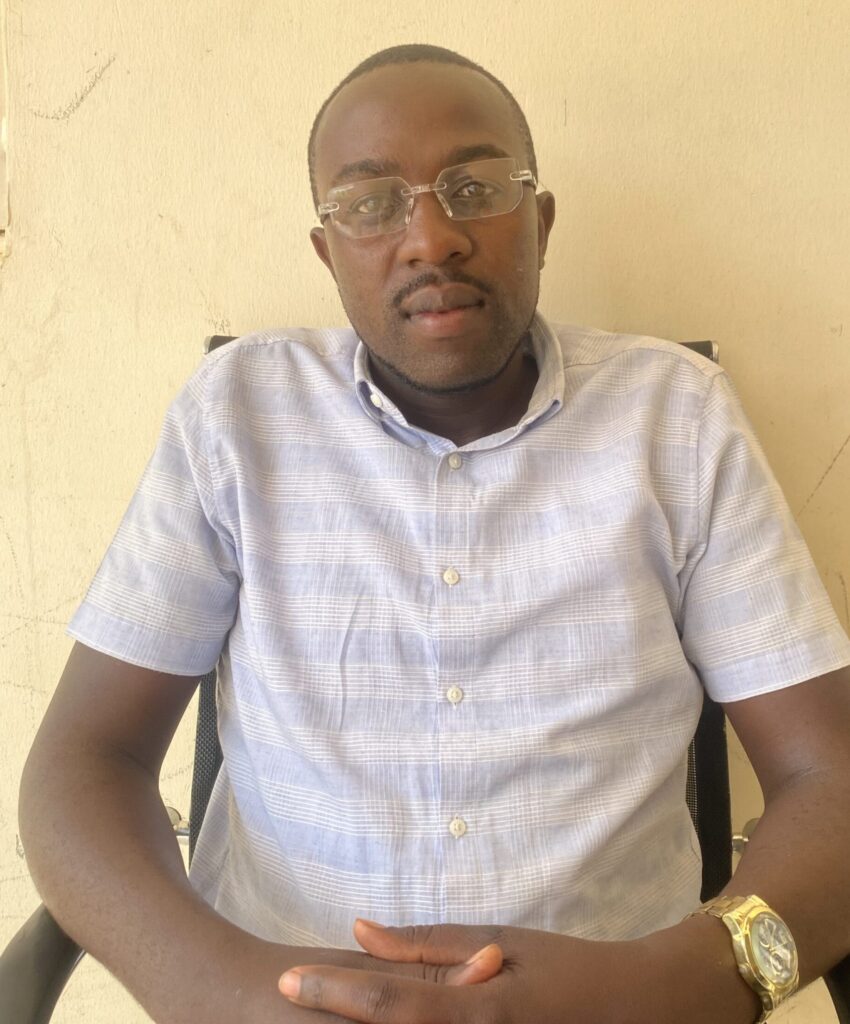Boda-boda rider drives community change in Uganda
 Boda-bodas are motorcycle taxis widely used in Uganda and across East Africa. Ssali Majjidu stands out by not only offering rides, but also serving as a dedicated community advocate.
Boda-bodas are motorcycle taxis widely used in Uganda and across East Africa. Ssali Majjidu stands out by not only offering rides, but also serving as a dedicated community advocate.July 15, 2025
By Jacqueline Tingle
At 31, Ssali Majjidu’s life looks a lot like that of many other boda-boda riders in Wakiso, the area surrounding the bustling capital city of Uganda, Kampala. He’s up early, weaving through traffic, picking up passengers, and earning a living. But for the people who know him, there’s more to Majjidu than just two wheels and a helmet.

He’s also the chairperson of the Wakiso Sub-County Boda-Boda Mwoga SACCO, a position he’s held for more than five years. In that time, he’s become a kind of unofficial mediator – stepping in when fights break out between fellow riders, or when families come to him with issues they can’t resolve on their own.
“I’ve always tried to help when people come to me,” he says. “Family fights, kids being neglected, money problems – even serious stuff like defilement. But honestly, I didn’t always know what to do or where to send them. I didn’t know how deep some of these problems really were.” That changed after Majjidu got involved in training led by Action for Rural Women’s Empowerment (ARUWE).
Alongside Hope has been partnering with ARUWE since 2018 in projects designed to support women and girls and raise awareness about Gender-Based Violence. In phase 3 of the Girls and Women Lead project, which promotes resilience and safeguarding of girls against teenage pregnancy and early marriage through community education, Majjidu heard about to topics he hadn’t been exposed to before. This includes different forms of gender-based violence (GBV), where to refer cases, the rights of women and children, and how men can be part of the solution.
“It opened my eyes,” Majjidu says. “I learned how to talk to people without judging, how to listen, and how to guide them to the right help. But maybe more importantly, I learned how to talk to other men about this stuff – and that’s where change starts.”
Since then, Majjidu’s made it his mission to reach out wherever he can – boda stages, village meetings, casual chats on the roadside. Each month, he connects with about 45 people, mostly men, using what he calls “simple but honest conversations” to talk about gender equality, healthy relationships and respect. He’s also supported more than 10 serious GBV-related cases, from domestic abuse to economic and sexual violence. Sometimes, he helps people get legal support. Other times, he just helps them understand they’re not alone.
“Even a short conversation can get someone thinking,” he says. “I talk to men about how to be better fathers, better husbands. A lot of us never had those talks growing up. So we repeat what we saw, even when it is wrong.”
But Majjidu’s journey hasn’t been easy. Some people are suspicious. Others tell him to mind his own business. Without an official ID or transport support, following up on cases or getting from one place to another can be tough. He credits ARUWE for believing in the power of male allies, something he says isn’t common in most community programs.
“When men are part of the conversation, things shift. You start to see GBV not just as a women’s issue, but as a community problem. Something we all have a role in fixing.”
For media requests, please email Communications and Marketing Coordinator Janice Biehn at jbiehn@alongsidehope.org.
